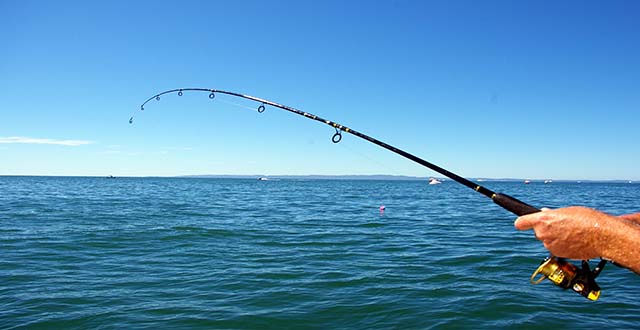
In order for fish to become permissible for a Muslim, it must have the following conditions:
1-The Muslim should be certain or satisfied that the fish has come out of the water alive and The fish must have scales on it. [That is, it should not be a skin fish]
2-The Muslim should be certain or satisfied that it died while it was already in the fishing net.
3-It is not necessary for the fisherman to be a Muslim or to utter the name of Allãh for the fish to become halãl. So, if a non-Muslim catches a fish and brings it alive from the water or it dies after getting caught in his fishing net or fishing line, and it has scales on it, it is permissible to eat.
4-A Muslim can ascertain the first condition by examining the fish if it is being displayed or by observing its name [which can tell you whether it is a skin fish or a scale fish] as long as you can trust the authenticity of the label.
5-It is permissible to eat shrimps, if they are brought out of the water alive. It is forbidden to eat frogs, lobsters, turtles, every amphibious animal, snails, and crayfish.
6-The law concerning eggs of fish follows the fish itself: the eggs of a halãl fish are permissible to eat and those of a harãm one are forbidden.
(Some experts of fisheries say that scale less fish mostly feed upon the waste of the sea and are in a way purifier of the filth, the squalor and the garbage of the sea.)
7-Is it not permissible to eat from marine animals anything except fish that has scale; shrimp is considered from that category [of permissible sea animals]. But other than fish, like lobster, and similarly the fish that does not have scale is forbidden. Allãh knows the best.
source:byislam.com
retrivd by:A Code of Practice for Muslims in the West










